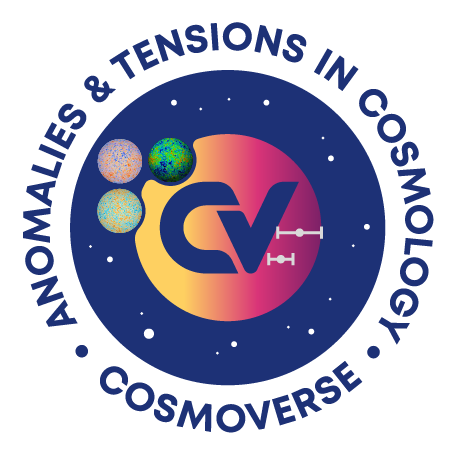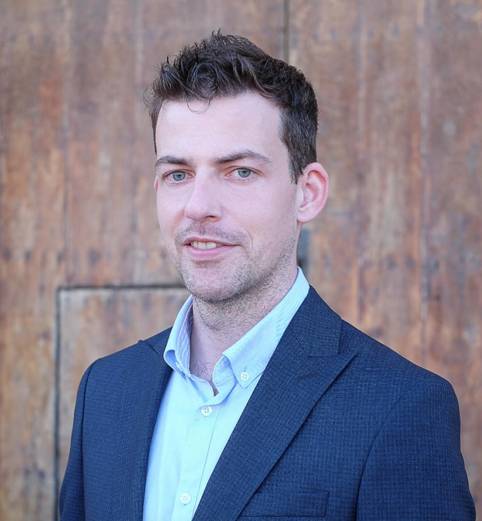What is your name, affiliation, academic position, and job title?
I am Jackson Levi Said, and I’m based at the University of Malta where I am an Associate Professor and Chair of the CosmoVerse COST Action.
What is your journey?
I read for a Bachelor in Science in Physics and Mathematics in Malta, where I grew up, after which I started a PhD in Cosmology at the University of Malta which I completed in 2014. The University was in the process of opening the Institute of Space Sciences and Astronomy (ISSA), which I joined as part of the academic staff at the time. I have since worked on building a cosmology research group at ISSA.
What is your field of research and/or what project are you involved in?
I am mainly focused on new physical theories in the context of cosmology and gravitational physics. This has recently taken the form of using machine learning applications to confront tensions in recent cosmic surveys using new physical theories.
What are your research plans?
My research group will continue to work on probing the nature of dark energy and dark matter through new formulations of fundamental physics theories, with the hope of producing more data-driven models of cosmology using novel approaches to data analysis. Thus far, the group has mainly been focused on geometric modifications to standard cosmology, we hope to expand this plethora of possible new foundations of cosmology.
How does CosmoVerse fit within those plans?
CosmoVerse aims to bring together researchers working in the theoretical, data analysis and observational sectors. This can only help our joint understanding of cosmology and the nature of cosmic tensions. CosmoVerse will help ground researchers working in fundamental physics theories by putting constraints on the properties that such models can exhibit. This will help our understanding of what theories can be tolerated within the horizon of observational cosmology.
What are the most exciting open questions in your research area?
CosmoVerse aims to bring together researchers working on tensions in cosmology. This is the most exciting question in modern cosmology. The problem arises when observational data sets are compared together in the context of the standard cosmological model, which seems to break down for certain surveys. If the issue cannot be resolved using observatory systematics, then it may be the first indication of new physics.
What advances or new results are you excited about or looking forward to?
From a cosmic tensions point of view, it will be very interesting to see new surveys based on novel measurement techniques of measuring the expansion of the Universe such as using gravitational waves or gamma ray bursts, among many others. On the other hand, there are many exciting results being released in the next few years related to the early Universe, it will be interesting to see how these results fit into our standard picture of the Universe.
What is your view on cosmic tensions? How does your work connect with this open question in the community?
As more data is made public, the open question of tensions in some cosmic data sets seems to grow in statistical significance. As the issue becomes more generally accepted, the possibility of non-standard cosmologies may become more plausible for the research community. The work of my research group aims to add weight to the robustness of these new cosmological models.
What is the biggest obstacle that is slowing down your research field right now?
It takes time to develop physical models before they can be probed against observational data. These models may exhibit nuances that require a lot of attention to detail when exploring their astrophysical and cosmological applications. The biggest obstacle to fundamental physics is the time and effort it takes to correctly develop physical models and then to confront them with observational data in a statistically robust manner. Despite these issues, new approaches are being developed to confront these challenges and to develop novel fundamental physics models.
What role do you think a community network like CosmoVerse can play in developing theoretical astroparticle physics and cosmology?
CosmoVerse brings together researchers working on theoretical, data analysis and observational cosmology. This makes it a key vehicle to confronting open problems in cosmology since it will provide networking opportunities to bring together such researchers as well as to train young researchers in cutting-edge topics in these separate thematic areas.
What do you like and dislike about being a scientist?
Science is about finding new information about the Universe we live in, and testing theories and explanations for the measurements made during these observations. This pursuit of truth is independent of personal opinion or authoritative judgements. These are the best parts of science. On the other hand, the process of verification is slow and the bureaucracy involved in getting projects funded can be frustrating.
What non-physics interests do you have and want to share?
I like reading, playing video games, and hobbyist electronics
What question would you have liked us to ask you, and what would you have answered?
I think that’s enough for now, but there are many more questions in cosmology!

